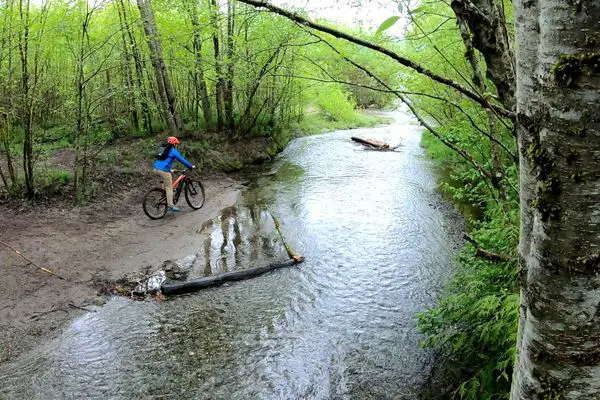I recently had to decide between buying a new 4wd vehicle, or just a more basic hatchback.
When I looked at things from a more sensible perspective, I only really need 4wd ability to access a handful of remote fishing locations, and maybe the occasional hiking trailhead or skifield. Realistically, 99% of my driving is on smooth roads, but that final 1% really does require a more capable set of wheels.
So for my own needs, I decided to research if I could realistically replace my 4wd truck with an off-road capable E-Bike. I thought the topic was sort of interesting, so decided to write down my findings.
Price- comparing off-roading with a 4wd truck and an E-bike.
I need to be upfront, e-bikes are not cheap, even an entry-level model can cost more than a used truck, and most people will still need to own a car anyway. So, in my situation, I need to compare the cost of owning a car and a E-bike with the cost of only owning a truck.
While the upfront costs of e-bike ownership are high, the operating costs are negligible. Well, that is until the battery needs to be replaced.
An entry-level Giant E-bike suitable for rough road riding starts at around $2500 and less on sale or second hand. Such a bike has an ‘ideal’ range of 93 miles, in the real world, with gear, headwinds, and undulating rough roads the realistic range seems to be about a third that, approximately 35 miles
So it should be possible to find a suitable bike for between $2000-3000. It is also very easy to spend double if not three times that on an electric bike.
With that said, one of the biggest downsides to owning a 4WD truck is the running expense, everything on it from fuel economy, to new tires and general maintenance all costs more compared with a car. It is not uncommon for all-terrain tires to cost double a typical car tire. The price of gas is also a consideration, while it does fluctuate it seems to be rising year on year.
So which is cheaper?
I honestly can not come to a clear conclusion. I feel like the upfront costs of owning both an e-bike and a car will be higher than the price of a used truck, but when running costs are taken into consideration the former is likely more affordable over the long term.
What is the best type of E-Bike for fishing trips?
There are many different bike variations. Broadly speaking the wider the tires the more comfortable they are on rougher roads, but at the expense of speed. Likewise, suspension makes a bike comfier over bumps, but slower and heavier on a paved road.
If I were to recommend a bike for accessing fishing spots it would likely be a gravel bike, like the name suggests they are designed for riding on gravel roads but can also handle trails. They do not usually have suspension, but other than looking cool suspension is not usually required unless doing some more difficult trails.
Another option will be a hard-tail mountain bike, the front suspension makes them a bit more comfortable on rougher rides. I advise avoiding full-suspension mountain bikes because they are a bit overkill, and I will not get a road bike because the skinny tires are horrible when conditions get rough.
Why an E-bike over just pedaling a mountain bike?
Because I am lazy, and I do not have endless energy.
I like the idea of an E-Bike because as I age, my endurance is not what it once was. If I had to pedal, every fishing trip will turn into a marathon effort.
The advantage of an E-bike, is that the motors can be used to power through any difficult sections, a bonus is arriving at the fishing location fresher and less sweaty. In saying that, on downhills and flats, or when the going is easy I can still pedal to conserve the battery.
The biggest advantage of pedal bikes are prices, budget models can be brought for only a few hundred dollars. It is what I ride most of the time.
Why an E-Bike rather than an electric motorbike?
I have been riding motorbikes for years before I got my driver’s license, they are heaps of fun. I also own an early generation electric motorbike for use on the farm. But I do not consider them that suitable for accessing remote trout fishing locations.
The first is that they often require a motorbike license to operate on the road, and they probably need to be registered.
The second is that if the battery goes flat. There are no pedals to get you home. They are extremely heavy things to push along with a flat battery.
Speed, and how long it takes to reach a fishing spot?
In most conditions, trucks are faster, even on 4wd tracks. I typically drive between 18- 25mph on good quality gravel roads, while I find e-bikes to be most comfortable around 12mph, sure they can go faster but it drains the battery quickly and the ride gets bumpy.
More time is lost at the start of the 4wd track, because an e-bike rider has to park their car, unload their bike, and secure all the fishing gear onto the frame. The truck driver does not have to stop until reaching the parking area at the destination.
When the road is extra rough, the difference in speed does become closer. I have even caught up to, and even overtook trucks in some more technical sections.
The e-bike is also faster once the road ends and the walking trail begins. In many cases, it is possible to ride along a hiking trail, depending on the length this can save a lot of time compared with walking.
So, with regard to speed. A truck is normally faster, but an E-bike can make up some ground when the road gets rough, or after the hiking trail begins.
Convenience – E-bikes can access more locations than trucks
One advantage of an E-bike is that they can access areas where trucks can not. For example, they can be lifted over locked gates or carried around windfall, or even a washed out ford.
In my area, forestry roads often get closed to private vehicles due to fire risk or vandalism, but mountain bikes and hikers are still allowed through.
I already mentioned this in the previous section, but e-bikes can also ride down any well maintained hiking trail, for example, my favorite brown trout alpine lake is a 2-mile walk, and takes about an hour of hiking. That turns into 15 minutes on a bike.
This is after 18 miles of driving on ranch tracks of various quality. So will take about 1 1/2 hours on the bike, and about an hour in my truck. So fairly even from a total travel time perspective, although, using both a truck and a bike is by far the fastest.
Range – Do E-bikes have enough range to reach that remote lake?
How long the battery is going to last is certainly a consideration. It is not uncommon for me to spend two or three hours driving on back country roads while fishing.
Do e-bikes have the range to keep up? Will, it depends on a dozen variables, but modern well specced e-bikes do have decent range now. Most are capable of being ridden for between 30-40 miles on a single charge.
Certainly less range than my truck, and in some situations 30 miles is not enough, but it will get me into, and out of all my most commonly fished spots. Plus there is always pedal power, or a spare battery to go even further.
So a truck does have a better range, but e-bikes are still fairly decent, especially if not ridden hard.
Lack of storage is a downside to E-Bikes
One big advantage of a truck or SUV is the ability to carry a lot of gear, in my trunk I can carry multiple fly rods, waders, boots, tents for camping, and anything else I might need for a fishing trip.
Meanwhile, space is very limited on an Ebike, I can really only bring what I can easily carry in my Panniers. So I could still bring an ultralight tent and sleeping bag, but there is no room for any luxuries or multiple fly rods. It is also very difficult to carry dead fish on while riding a bike.
Another big downside to an e-bike, is that I can not use it to carry my fishing kayak. That means, there will be a couple of backcountry lakes I can no longer paddle, although to be fair, I have only paddled them once in the last twenty years, so in my personal case it is not a huge sacrifice but for other people, it is something to consider.
An E-bike only has one seat, so I can not take friends or family
The title explains everything, if I go fishing on my bike, I go fishing by myself. I can not bring friends or family with me unless they have a bike of their own.
So better for solitude, but is certainly a less sociable option.
A bike provides no protection against the environment
On a few occasions, when fishing in the mountains I could see a storm slowly approaching, In these cases, I had just enough time to get back to my truck before getting saturated. Inside I am warm, comfy, and out of the weather.
When riding a bike in the mountains, you have to be prepared to deal with anything the mountain has to throw at you, scorching heat, and clouds of dust from speeding trucks are not uncommon in the summer. In the fall and spring, bitterly cold storm fronts can turn a nice day miserable in only a few minutes. Bikes offer no protection against the elements.
Final words- my thoughts
In this article, I have listed the main pros and cons of using a bike to access remote fishing locations inaccessible with a 2wd.
I feel, buying an electric bike, for the occasional backcountry trip is probably not going to be much cheaper than owning a truck. But if you cycle frequently, it might just be a worthwhile investment.

